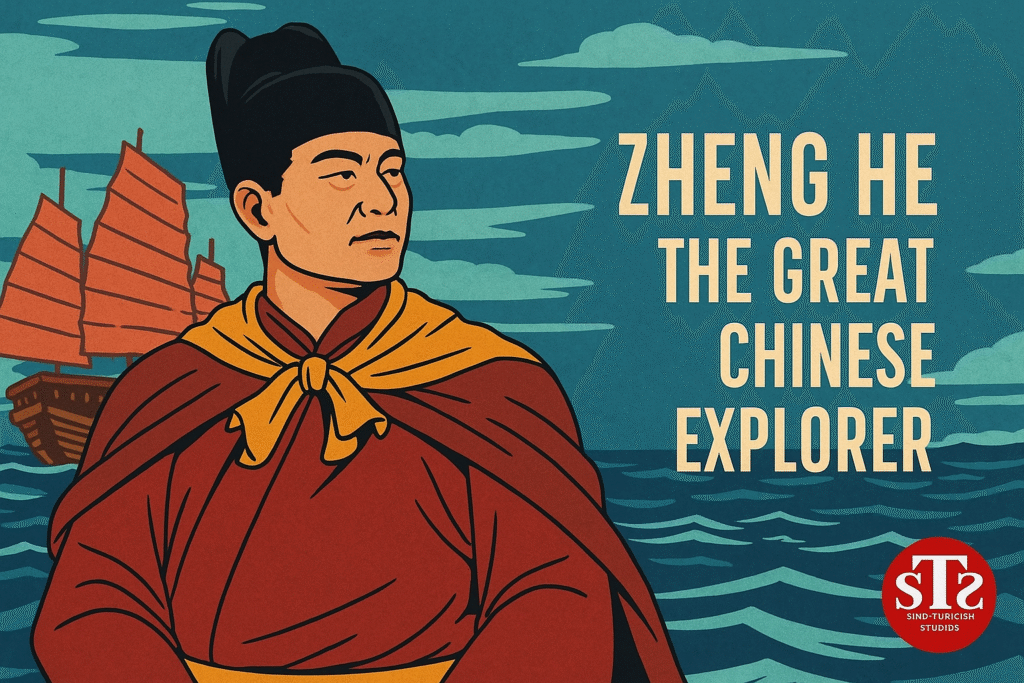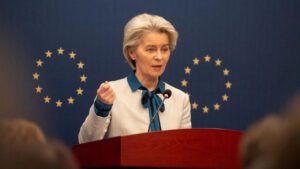You’ve heard of Marco Polo. Maybe you’ve heard of Magellan. But Zheng He?
Long before Europeans dared to leave their coasts, China’s famous Muslim admiral Zheng He (pronounced “Jung Huh”) was commanding massive fleets across the Indian Ocean, bringing giraffes, gold, and goodwill to kingdoms as far as Africa.
Imagine this: while the Western world was still debating whether the ocean ended in a waterfall, Zheng He was on his seventh transcontinental voyage, leading thousands of men and hundreds of ships.

👤 Who Was Zheng He?
- Born Ma He in 1371 in Yunnan, China, Zheng He was a Muslim child from a Hui ethnic family.
- Captured by Ming soldiers as a boy, he was castrated and served in the imperial palace as a eunuch.
- But fate had bigger plans. He rose to become Grand Admiral of the Ming navy, leading some of the largest maritime expeditions in human history.
🛳️ What Did He Do?
Between 1405 and 1433, Zheng He led seven major naval expeditions under Emperor Yongle.
- He sailed to today’s Vietnam, Indonesia, India, Sri Lanka, Iran, Arabia, and the East Coast of Africa.
- His “Treasure Fleet” included ships over 120 meters long (for comparison: Columbus’s Santa Maria was just 19 meters!).
- He brought back zebras, ostriches, and giraffes—yes, real giraffes!
- Most importantly, he forged peaceful diplomatic and trade relations, carrying gifts and messages of goodwill from China.

🌍 His Place in Global History
Zheng He’s voyages marked the peak of Chinese naval power. No fleet in the world at that time rivaled his in size or sophistication.
But Zheng He wasn’t just about grandeur—he was one of the earliest ambassadors of global diplomacy. Instead of invading, he gifted. Instead of colonizing, he connected.
After his last voyage, however, the Ming Dynasty turned inward, and China’s age of exploration faded.
Historians often ask: What if China hadn’t turned its back on the seas?
Would the Chinese have discovered the Americas?
🦒 A Fun Anecdote
When Zheng He returned from Africa with a giraffe, the Ming court believed it to be a mythical “qilin”—a Chinese symbol of peace and prosperity.
The emperor considered it a heavenly sign that confirmed the virtue of his rule.
🏆 Why Zheng He Still Matters
In the 21st century, as China reasserts its global influence through the Belt and Road Initiative, Zheng He is more than just a historical figure—he is a national symbol.
- Statues of him stand in Chinese ports.
- Museums celebrate his legacy.
- Even modern diplomacy borrows his image: “Peaceful Voyages of Zheng He.”
His story inspires a narrative of exploration, connectivity, and cultural exchange—values that still resonate today.
Zheng He wasn’t just China’s answer to Columbus—he preceded him by nearly a century, with larger ships, wider routes, and a bolder vision.
He showed that exploration doesn’t always mean conquest—it can also mean connection.
In a time when the West dominated the narrative of discovery, Zheng He’s story reminds us that China, too, had its age of ocean-faring greatness—one that reshaped early global relations.

📝 Description:
Discover Zheng He, the legendary Chinese Muslim admiral who led massive voyages across the Indian Ocean before Columbus. A true maritime marvel in global history.
🔑 Keywords:
Zheng He, Chinese explorer, Ming Dynasty navy, Treasure Fleet, early globalization, Zheng He giraffe, Chinese maritime history, Belt and Road, Zheng He Africa
Abroad Africa AI Beijing Belt & Road BLCU BRICS China chinese CPC CSC Culture Economy education EU Guizhou Kültür Langauge movie Multipolarity Russia scholarship science Shanghai Sino Sino Turkish Sino Turkish Sino Turkish Sino Turkish Sino Turkish Studies Sino Turkish Studies Sino Turkish Studies Sino Turkish Studies space Syria Taiwan Tariff trump Turkiye Türkiye University USA Xinjiang ZJUT Çin





